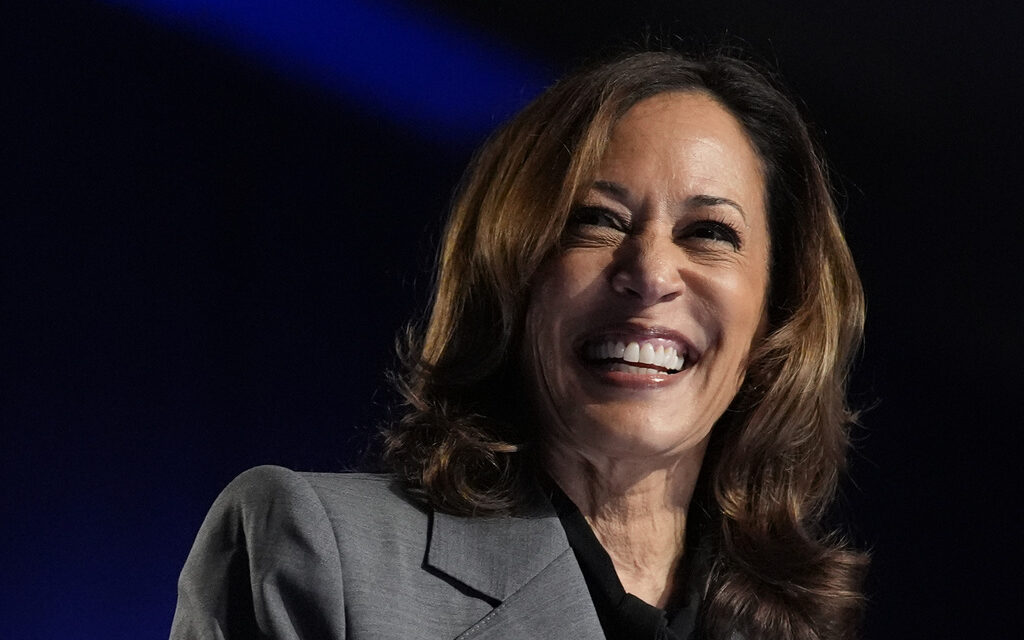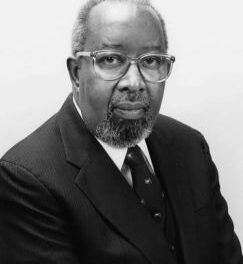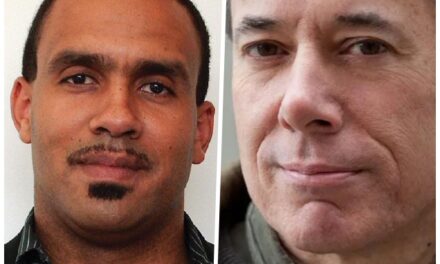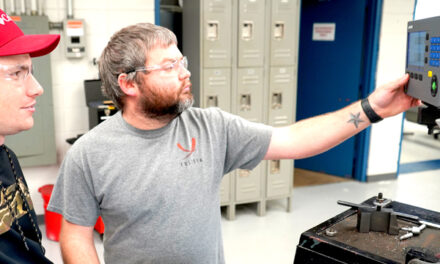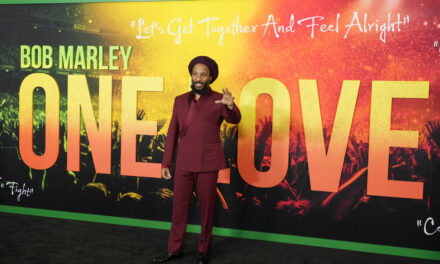
By D. Kevin McNeir
Special to the AFRO
Despite the lofty ideas and goals that the founding fathers and their colleagues espoused after the 13 colonies declared their independence from England and created both an alternative form of government and a new country, Americans have always wrestled with the paradox of claiming to be “the land of the free” while only guaranteeing its rights and privileges to a limited few. In its early years, that meant White, property-owning men. As time evolved and perspectives changed, others would gain access to similar rights, regardless of race, religion, economic status or gender. However, while numerous ceilings have been shattered, either resolved within the U.S. judicial system or in the court of public opinion, one “ceiling” has remained intact: America has never had a woman serve as president.
In contrast, many of the world’s leading countries, including Argentina, Iceland, the United Kingdom, India, Israel and the Philippines, have elected a woman to lead their nation in the role of president or prime minister.
Meanwhile, America has held fast to its centuries-old tradition in which only White men have occupied the White House. That is, until voters – Blacks in particular – showed up at the polls in record numbers, securing Barack Obama’s bid to become America’s first Black president.
Now, with fewer than 50 days remaining until the General Election, and with early voting already occurring in some states, Americans are faced with the possibility of a woman, Vice President Kamala Harris, being elected as commander in chief.
Harris, who has rarely commented on the historic first she would achieve with a victory in November, unquestionably stands on the shoulders of women who have chipped away at America’s political glass ceilings, including Jill Stein, Carol Moseley Braun, Geraldine Ferraro and Sarah Palin, to name a few.
Two women, in particular, stand out as having paved the way for Harris as she continues to shock the naysayers in her bid for the White House: Shirley Chisholm, the first woman in Congress (1968) as well as the first woman and African American to seek the nomination for president from one of the two major political parties, (1972) and Hillary Clinton, who in 2016, became the first woman major-party presidential nominee.
But have Americans overcome long-standing views based on racial, ethnic and gender prejudices, biases and stereotypes to such an extent that one can realistically imagine America choosing a woman of color to ascend to the office of president?
The AFRO asked Black voters in Washington, D.C., Maryland and two battleground states, Michigan and Georgia, what issues are among their greatest concerns and if they believe America is ready to vote for a woman of color for president.

Cyril Mayes, 64, an information systems solutions architect who lives just outside of Atlanta in Snellville, Georgia, said he’s worried about the fragile state of the union – a fear which has solidified Harris as his choice for president.
“It seems that Trump has his Supreme Court appointees, most of the Republicans in Congress and a number of state governors who endorse his policies and views that, while often in his best interests, are not in step with those voiced by many Americans – they’re Donald Trump’s lackeys,” said Mayes, who, as a man of faith and a leader in both the AME church and his fraternity Alpha Phi Alpha, said he has long been committed to political activism.
“I’m a husband, father and grandfather and for the sake of future generations, we cannot allow a candidate who has pledged to gut the Department of Education and to overhaul the Department of Justice, presumably to his benefit. I believe Trump would destroy our country’s democratic process so that the voice and vote of everyday Americans no longer matter. If we don’t vote for Harris, that’s what the future holds with Trump.”

Melanie L. Campbell, president/CEO of the National Coalition on Black Civic Participation (NCBCP) and convener of the Black Women’s Roundtable, led a press conference on Sept. 11 to announce the release of NCBCP’s 11th Annual Black Women’s Roundtable Report and to highlight both disparities and recommended solutions for the issues which many Black women face. She spoke to the AFRO following the press conference to further illuminate her concerns.
“Some of the most intellectually powerful Black women in the country are represented in this year’s annual report and we all agree that our theme for the report is one which all Americans should claim: ‘Owning Our Power in 2024: Now is the Time to Participate, Protect, Preserve and Promote,’” Campbell said.
“From a political standpoint, we are witnessing an historical moment that we cannot ignore with Black women stepping forward as nominees for U.S. Senate in three states: California (Rep. Barbara Lee), Maryland (Prince George’s County Executive Angela Alsobrooks) and Delaware (Rep. Lisa Blunt Rochester). We must leverage that power in this new political era as we continue to highlight the most pressing issues facing women of color: the economy and the high cost of living, the right to maintain control over our own bodies including reproduction and our freedom and right to vote.
“As for the two presidential candidates, we find it grossly unfair that within many circles of the media, Harris is expected to almost walk on water while all Donald Trump has to do is show up. Throughout the current election cycle, we have seen women candidates facing bias at alarming rates by the press, including Harris. This is the reality they face which we must vigorously denounce,” Campbell said.
Only 12 Blacks have served in the U.S. Senate since it was established in 1789. Three have been Black women (including Harris in 2017), none of whom served together.
For Loretta Myers, 61, a caregiver for the sick and elderly who lives in Olney, Maryland, Harris stands as the only candidate “qualified for the job.”
“With Harris, we will be okay,” she said, adding that her major concern is improving America’s health care system.
“There are too many roadblocks that people must face when they’re in need of medical attention, particularly when the issues are long term. Too many Americans must choose between eating and paying their rent or getting the medical care they require. We can and must do better.”

Husband and wife Lamar and Iris Davis, both 64, from Houston, agreed that women’s rights, including reproductive rights, top their list of concerns as they go to the polls.
“The government needs to protect the rights of its citizens and stop trying to take away or limit those rights,” Lamar Davis said.
“It should be a woman’s decision whether she wants to have an abortion or not. It should also be a gay couple’s right to enter into marriage, if they chose and all citizens should be able to vote without the suppressive tactics we’re seeing in many states. At first, I doubted whether America was ready for a woman to be elected president. But given the kind of support she’s received, even from some of the nation’s most influential Republicans, and with the assault on our democracy from the right, it’s clear to me. While one may differ with Harris on certain policies, there’s just no way we can allow Trump to return to office,” he continued.
“America’s been ready for a woman president – we were ready 10 years ago,” Iris Davis said. “There’s no logical reason to justify why America lags behind other leading nations in putting their support and votes behind a woman. Just as Trump asked Blacks during his 2016 campaign, ‘What do you have to lose?’ Harris can reasonably pose the same question.
“Harris is far and away the superior candidate, the right person for right now and if people stop swallowing false narrative and conspiracy theories promoted by Trump and his cronies, they will realize that,” she concluded.
Roy Daggs III, 64, who lives in the Detroit suburb of Southfield, Michigan, said he’s worried that with corporations providing so much money in support of candidates who favor their policies, the voices of ordinary people, and the importance of their vote, have been sidelined by corporate donors who operate more like people than businesses.
“People feel like their vote doesn’t matter anymore, that’s why a lot of youth don’t vote. And in truth, I often cannot blame them,” Daggs said. “We’ve been asking for improvements in America’s health care system for decades but only Barack Obama put any real effort into addressing that concern. Since then, there have been nothing but efforts by Republicans to dismantle the Affordable Care Act. Trump says he wants to get rid of it but he still doesn’t have a plan to replace and improve it.
“I am excited because I believe the state of America today resembles what we faced when Obama ran for president and won and when Clinton, despite a valiant effort, fell short. Given the emphasis on women’s reproductive rights and the obvious differences between Harris and Trump on abortion and in vitro fertilization, I give the edge to Harris. Yes, she could win,” Daggs said.

The economy tops the list for Frederick Ingram, 50, who lives in Upper Marlboro, Maryland and serves as secretary/treasurer for the Washington, D.C.-based American Federation of Teachers. However, he adds that there are a lot of other issues which could easily be added, most notably the need for more affordable housing, the job market and the need to provide more training for Blacks who chose to secure skills as laborers rather than to invest in college degrees.
Like Daggs, he believes America needs a person like Obama – “the last president we’ve had who was committed to dealing with the many challenges and concerns which Americans faced in a holistic manner,” Ingram said.
“Before Obama, Blacks, especially those with pre-existing conditions, were forced to rely on emergency rooms as their primary source of healthcare,” Ingram said. “Even with the Affordable Care Act, Blacks remain far too familiar with the reality that we’re only one sickness away from financial ruin. So, the economy remains our No. 1 concern.
“Is America ready for a woman president? I guess we’ll find out in less than two months. But for the record, over the past few decades, Black women have saved America from itself. Black women have been the foundation of America’s moral fiber. And Black women, since the days of slavery, have been on the right side of history,” he continued.
“Blacks have always been aware that we must be 10 times better than Whites just to be considered regular or average – perhaps even competent. Harris faces enormous pressure as a woman, as a woman of color and as the first candidate to rightfully check all those boxes and be elected as president. The story of Blacks in America illustrates our ability to persevere no matter what the odds. So, I have no doubt that Kamala Harris will win.”
The post Is America ready for a female commander in chief? Black voters weigh in on the possibility appeared first on AFRO American Newspapers.

